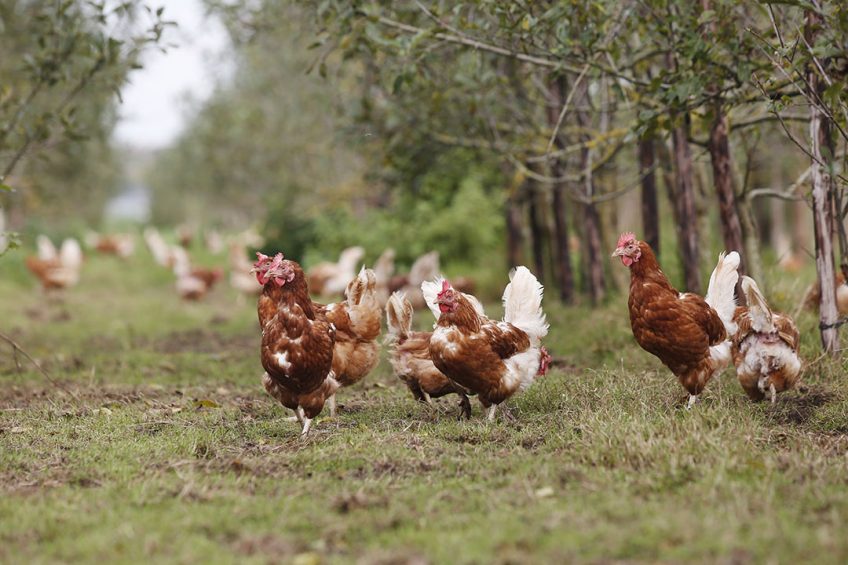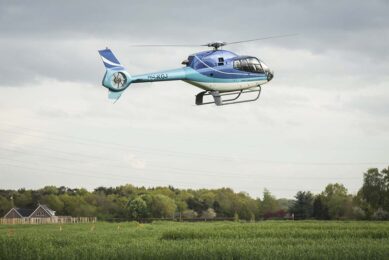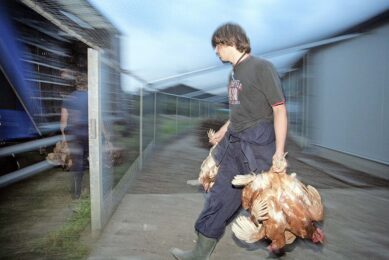Poultry farms are havens for wildlife

Trees planted on poultry farms in the UK are providing considerable benefits for biodiversity as well as improving the health and welfare of free-range hens and providing a price premium for farmers.
Those are the findings of a five-year study carried out by the Woodland Trust on 9 farms supplying the Cumbrian-based The Lakes Free Range Egg Company. During that time, numbers of birds, butterflies, moths and bats were studied during the spring and summer. 3 of the farms had established trees on them of more than 8 years old, 3 had trees between 4 and 7 years old and 3 only had trees planted in the last 2 years. The aim of the research, which also involved the Cumbrian Farm Environmental Partnership, was to assess what wildlife used the tree habitats and how farmers could further enhance its value.
Results
A total of 59 species of birds were recorded across all ranges – 12 of which are currently included on the Red List of Birds for Conservation Concern, including song thrush, tree sparrow and linnet. A further 11 are on the Amber List, such as meadow pipit and bullfinch. The average number of birds recorded was 327. The number of breeding pairs on the newly planted ranges increased over the survey period and decreased on the intermediate and established ranges after peaking in 2017. This is because as the trees become more established, the canopies start to merge and birds prefer the more open tree cover that is present during the earlier stages of the range planting schemes.
Bats were recorded on all nine ranges each year – the most frequently record were common and soprano pipistrelle. Foraging activity was greatest where invertebrate prey was most abundant, which corresponded to the areas with the most extensive tree cover. The bats spent an average of 40 minutes in new ranges and up to two hours on the others
The surveys also recorded 102 species of moth and 14 species of butterflies. The highest numbers of moths were on the established ranges and the average number appeared to increase in relation to the age of the trees. The open tree cover coupled with relatively diverse ground cover vegetation benefits a wide range of species including several threatened species, such as grey dagger, sallow and ghost moths.
Having clear evidence of just how many species we are attracting, and the role being played in tackling climate change is fantastic
David Brass, Chief Executive Officer of the Lakes Free Range Egg Company
Farmer perspective
David Brass, Chief Executive Officer of the Lakes Free Range Egg Company, which supplies eggs to Sainsbury’s in support of the Woodland Trust, said it had been fascinating seeing the results of the surveys each year. “We already know the trees that we and our suppliers have planted bring a range of benefits to our farmers in terms of poultry welfare and production, and we’ve always had anecdotal evidence of them attracting wildlife, noticing more birds… “Having clear evidence of just how many species we are attracting, and the role being played in tackling climate change is fantastic. It is a pleasure and privilege to be able to plant trees, improving hen welfare and profitability whilst creating much need habitat for wildlife.” Helen Chesshire, lead farming advocate at the Woodland Trust, said integrating trees into free range poultry production helps farmers meet high standards of animal welfare as well as respect the natural environment and producing a nutritious product. “Trees on farms can improve animal health and welfare, as well as production – both in the quality and quantity of eggs. This management practice has led to the development of a premium market for woodland eggs – eggs laid by free ranging hens with access to tree cover – and has been shown to improve a farmer’s income,” she added.
Join 31,000+ subscribers
Subscribe to our newsletter to stay updated about all the need-to-know content in the poultry sector, three times a week. Beheer
Beheer








 WP Admin
WP Admin  Bewerk bericht
Bewerk bericht